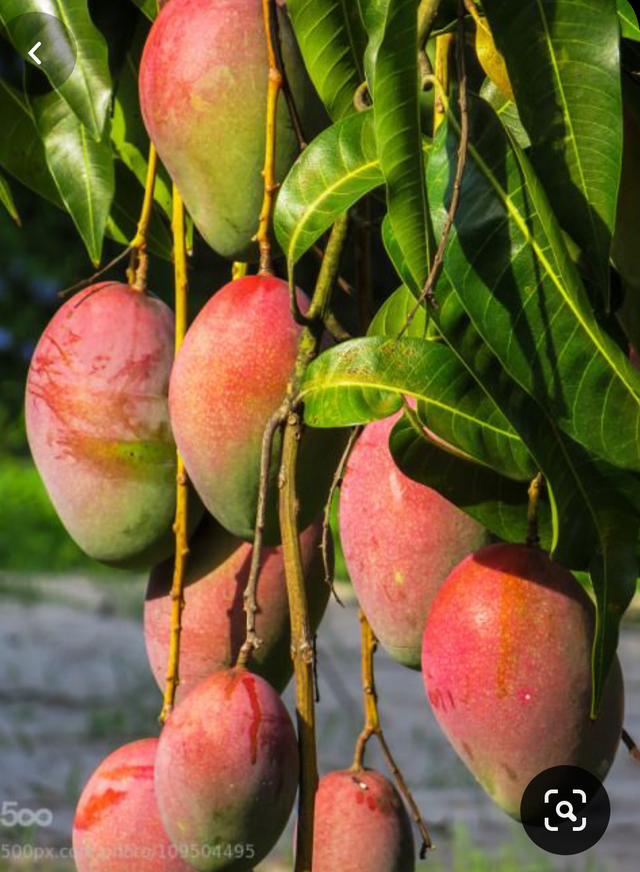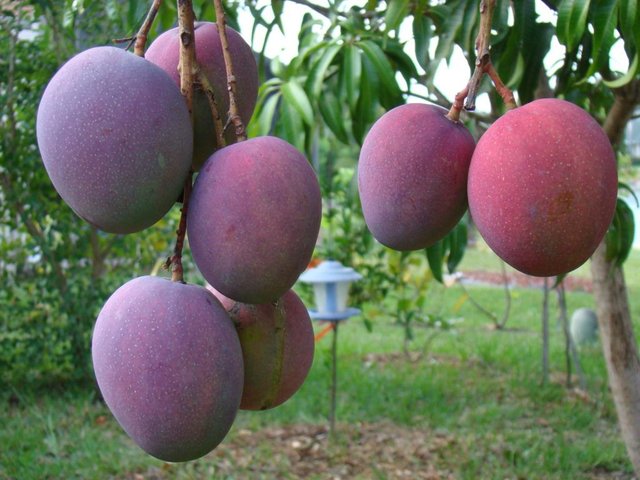Hello Friends,
In eastern part of nigeria, precisely ebonyi state,Mango is one of the most common fruit found in my area.
So because it is commonly found without any cost,the Worth of mango in my area have now been downgraded to 30%.Though it serves as food during the world war according to the history.Not long ago the community noticed poor growth and deforestation,so the elders had meeting and set-up a consumption law that will guide strangers that come from far and near to get the fruit because of the history behind the excessive growth in our community..
Rules for consumption
1.Strangers are not allowed to go with the see of mango after consumption
2.stranger are no allowed to come with bag..e.t c.
b84f3b631c2ad39ce3dad7b63605c402.jpg
Source
Now tracing down to the origin....
History /cultivation in africa
Mangoes were domesticated in India around 400 B.C, and by the 10th century, had made their way to East Africa where they were cultivated. In addition, Portuguese traders brought mango seeds along their route, spreading the trees to their African colonies in the 16th century.
Mango production in nigeria
Mango is grown across most of Africa and there are over 100 different varieties of mangoes grown and harvested across many African countries. Although Nigeria remains Africa’s top producer of the fruit occupying the position of the 8th largest producer of mangoes (followed by Kenya, Egypt and Madagascar), almost all of its yearly harvests are consumed locally or rot away as waste.
Many types of mangoes are cultivated across nigeria including the following popular species:
Tommy Atkins
Which are medium to large sized thick skinned mangoes. These mangoes are mild and sweet and are very versatile.
Keitt
Which are rounded and yellow in colour. These mangoes are sweet and fruity, and have a juicy flesh. They are best enjoyed eaten as a fruit or pickled.
Cherry mango
Which is also called sheri or cherie. These mangoes are green in colour and are elliptical in shape. They have a rich and spicy taste, with an aftertaste of Kerosene or turpentine. These mangoes are best for juicing or eaten as a fruit.
###Kent mangoes
These are greenish-yellowish in colour, and are very juicy. These mangoes have a fibre-less flesh, with a large oval shape and are perfect for juicing and drying.
Kesar mangoes
Which are smaller in size with round shape. These mangoes are my favourite mangoes and they have a very smooth skin, a dull appearance with patches of yellow, are very sweet, and dripping with juice.
Honey Mangoes
Which have an elongated and pointed curve shape at one end. These mangoes are very sweet with a very aromatic flavour, with a flesh that goes very soft as it ripens.
.jpg)
Source
...all this varieties are commonly found without any cost in my area, majority of people living around my community don't know really know the content/nutrients in mango...
So the fruit is mostly enjoyed by strengers who really know the Worth of mango....
Finally mango fruit is 100% valued in the case of afforestation but disregarded in the case of nutrients in my community...
Cc:-
@steemitblog
@steemcurator01
@steemcurator02
@belenguerra
@bright-obias
@badsha1
Thank you all....

.jpg)
.jpg)

.jpg)

.jpg)
.jpg)